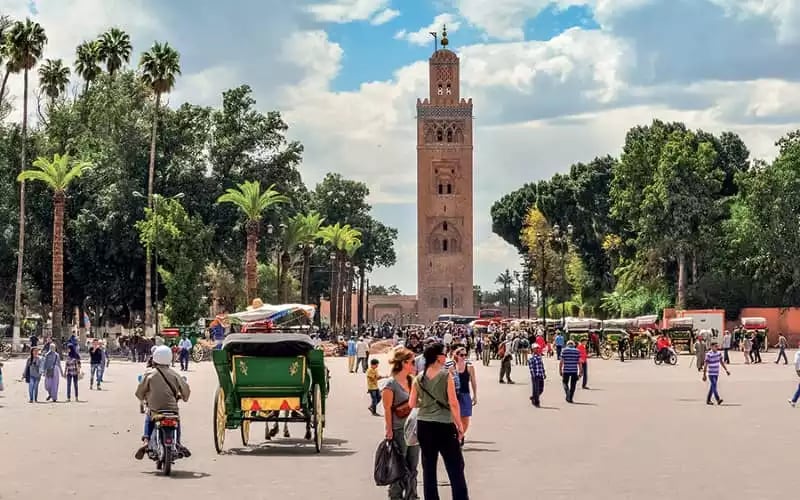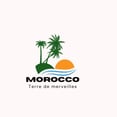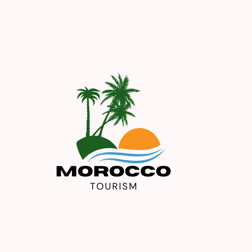Morocco, LAND OF WONDERS
Why is it time to invest in the hospitality and tourism sector in Morocco?
In a constantly evolving world, Morocco's hospitality and tourism sector presents a strategic investment opportunity. As the country recovers from recent economic impacts, it offers a favorable environment for investors looking to capitalize on a booming market. With its enchanting landscapes, rich culture, and legendary hospitality, Morocco attracts millions of visitors each year. The rise of modern infrastructure and the government's commitment to promoting tourism reveal exceptional potential for those wishing to engage in this dynamic field. In this article, we will explore why now is the time to act and seize this unique opportunity to invest in Morocco's vital hospitality and tourism sector.
LIVING IN MOROCCO
By ISMAIL Reda
4/19/20256 min read


Morocco's tourism sector is essential to the health of the national economy. Contributing approximately 7% of Morocco's GDP (7.1% in 2022 and 7.2% in 2023), this sector plays a significant role in job creation and economic growth. This sector also has a ripple effect on other segments of the economy, such as transport, communications, crafts, trade, and construction.
The sector has experienced favorable growth, and the number of tourists has increased significantly in recent years. Demand for rooms and hotels has been very strong and constant in recent years. However, it appears that, despite this growing demand, the Moroccan hotel offering remains insufficient to meet this demand or may be unsuitable.
To address this deficit and promote the tourism and hospitality sector, the Moroccan government is working through several mechanisms to stimulate and attract investment in this area. All of the government's actions are also part of the preparations underway for the Kingdom's joint hosting of the 2030 FIFA World Cup with Spain and Portugal.
In this article, we reveal the main reasons why investors should take an interest in the tourism and hospitality sector in Morocco.
After presenting an overview of tourism in Morocco, we will present, in this article, all the mechanisms and incentive measures put in place by the Moroccan government to develop the tourism and hotel sector and try to show you how investing in this sector can only be beneficial for you.
Overview of tourism in Morocco
Rich in its millennia-old history, Morocco offers its visitors a rich and diverse tourist experience.
Located only 14 km from Europe, Morocco is an accessible destination with an average flight time of 2.5 hours from major European capitals.
The kingdom boasts a diverse natural environment, with 3,500 km of coastline, a temperate climate, contrasting and varied landscapes (seas, mountains, valleys, and deserts), and an exceptional cultural heritage boasting imperial cities, medieval medinas, renowned gastronomy, renowned crafts, and a welcoming population offering visitors a subtle and refined tourist experience. Morocco occupies a relatively comfortable position in terms of tourism on a continental scale. It is among the top three, along with South Africa and Egypt.
Morocco has experienced strong growth in tourist numbers in recent years. It welcomed 4.4 million tourists during the months of July and August 2024, a 21% increase compared to the same period the previous year. According to the Ministry of Tourism, Crafts, and Social and Solidarity Economy, this growth is due to efforts to promote the country's tourist destinations and improve their accessibility.
In February 2024, the country welcomed 1.1 million tourists, a significant increase of 18% compared to February 2023. Foreign tourists accounted for 53% of arrivals, while Moroccans residing abroad accounted for 47%. This growth demonstrates Morocco's continued appeal as a tourist destination and the effectiveness of efforts to promote and improve accessibility in line with the 2023-2026 tourism roadmap.
Mechanisms and incentives for investment in the hotel sector
In Morocco, fiscal, financial, and institutional incentive measures have been implemented to attract investors.
These are presented below:
The New Investment Charter in Morocco
The New Investment Charter (NCI) in Morocco aims to stimulate the private sector in Morocco, strengthening the Kingdom's economic attractiveness and increasing foreign investment. With a set of well-defined bonuses and incentives, this charter is an integral part of Morocco's "New Development Model," which aims to increase private investment to two-thirds of total national investment by 2035. The tourism sector is one of the priority sectors targeted by the support measures provided for in the NCI.
Main Investment Support Scheme
This scheme is based on two eligibility criteria, allowing for a subsidy of up to 30% of the amount invested. The first criterion is job creation. This criterion requires the creation of at least 150 jobs, with no minimum investment required. The second combined criterion requires a minimum investment of MAD 50 million, linked to the creation of 50 stable jobs. In addition, several specific incentives are available for investors meeting other criteria: Employment and Gender Bonus: Depending on the employment/CAPEX ratio, a bonus of 5 to 10% may be granted. In addition, a 3% bonus encourages the inclusion of women in employment. Sustainable Development Bonus: A 3% bonus is reserved for projects committed to ecological sustainability. Local Integration Bonus: This bonus promotes the use of local resources, thus supporting the regional economy.
Strategic Projects Facility
For strategic projects, this facility offers dedicated support for investments exceeding MAD 2 billion, targeting high-impact projects, particularly in the areas of national security, job creation, or the development of industrial ecosystems.
Scheme for Very Small, Small, and Medium-Sized Enterprises (VSMEs)
Recognizing the importance of VSMEs in the Moroccan economy, this scheme facilitates their access to financing and public procurement, enabling them to grow and strengthen their competitiveness.
The Creation of the Moroccan Tourism Engineering Company – SMIT
SMIT was created to implement the tourism product development strategy in Morocco. Its primary mission is to conduct or commission, on behalf of the State or legal entities governed by public law, studies contributing to the development of the tourism product and the promotion of tourism investments. SMIT's services to investors: - Support for private and public investors; - Fundraising for the financing of tourism projects in its portfolio by leveraging its network of international partners; - Through its Tourism engineering (Product, land and financial), SMIT provides investors and decision-makers with the necessary elements to influence their investment decisions in terms of types of projects to develop (accommodation, heritage development, leisure facilities, etc.), tourist destinations to target (maturity, seasonality, positioning, etc.) or level of profitability to achieve and possible structures (public, PPP, private structures, etc.);
Tax Benefits
Tax exemption for the first five years of investment is one of the most attractive and significant advantages Morocco offers to encourage investors in the hotel sector. After the five years, investors can also benefit from another tax advantage: a reduced tax rate of 17.5% on profits.
Financing Benefits
Investors in the hotel sector can benefit from incentives that provide them with the necessary support to finance their projects. To this end, several investment funds are available to investors in the hotel sector:
The RENOVOTEL Fund:
The "RENOVOTEL" Hotel Unit Renovation Fund, managed by the Caisse Centrale de Garantie, is a mechanism designed to support the financing of the upgrading and modernization of establishments in Morocco. It allows for joint financing with banks and under favorable conditions for tangible and intangible investments (See the website open_in_newriels) for upgrading or repositioning products aimed at creating added value, improving the quality of services, and addressing environmental issues. All classified establishments (5-star, 4-star, 3-star, 2-star, and 1-star hotels, club hotels, hotel residences, and guesthouses) are eligible to benefit from this mechanism.
The CAP HOSPITALITY Program
This program provides loans to hoteliers, ranging from 3 to 100 million dirhams, with maturities of up to 12 years, including a two-year grace period. The government will cover all interest on these loans, providing a unique, limited-time opportunity for hotel establishments to modernize their infrastructure. Eligible establishments that have not been renovated in the last five years will be eligible for this program, which covers renovation work, upgrading, the purchase of furniture and equipment, and the implementation of energy efficiency programs. This program is being implemented at a time when Moroccan hotel supply is struggling to meet growing tourist demand and the hotel sector, 80% of which is independently owned, is lacking financing and investment.
The situation can be described as follows: many well-located and well-exposed hotels, which deserve renovation, are run by owners who lack the financial means to renovate their properties. These owners will have no choice but to sell their properties. Furthermore, some hotels rated two stars or lower represent a range that is no longer suited to increasingly demanding tourist demand (there is a distinct lack of three-star and higher hotels and luxury hotels to meet the needs of business travelers or a certain more demanding tourist clientele). However, with revenue per room and room occupancy rates steadily increasing for several years, the hotel industry in Morocco remains a growing market and a sector of activity in which investment is very attractive. Indeed, a hotel investment is a financial investment likely to increase in value over time and whose future returns can only increase.
Financial incentives for the development of seaside hotel projects
To support hotel investors in developing units within seaside resorts, an incentive mechanism has been established to reduce the impact of land tax on investment costs by subsidizing half of the land cost, up to a maximum of 250 MAD/m². Hotel projects located in a seaside resort, regardless of its location, will be eligible for this subsidy.
Financial incentives to improve the competitiveness of tourism SMEs
The Ministry of Tourism has established a mechanism to boost entrepreneurship among tourism SMEs and help them improve their competitiveness, both during the creation and growth phases. This mechanism aims to support SMEs in developing tourism projects or activities.
Conclusion :
Given the advantages and incentives in place, a hotel investment project in Morocco has a strong chance of success. The hotel sector is a safe bet, as it is a reliable and profitable market benefiting from constant growth. It can prove very profitable, offering attractive returns ranging from 15% to 20%. To ensure its relevance and profitability, a hotel investment project, like any other investment project, nevertheless requires a preliminary study: location of the property, environmental risks, day-to-day management of the establishment, financial business plan, availability of human resources, competition, etc. To limit risks, be sure to study and analyze these different factors before embarking on your hotel investment project !
Leave a comment :
About us
Legal notices
Privacy Policy
Terms and Conditions of Sale


Follow us on :
Complete travel guides
© 2025 Morocco Terre de Merveilles
